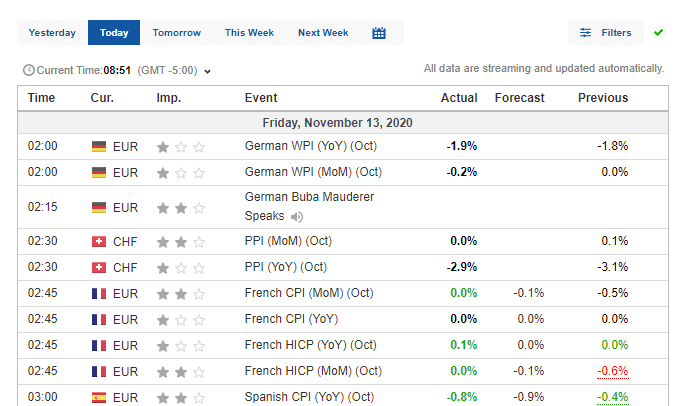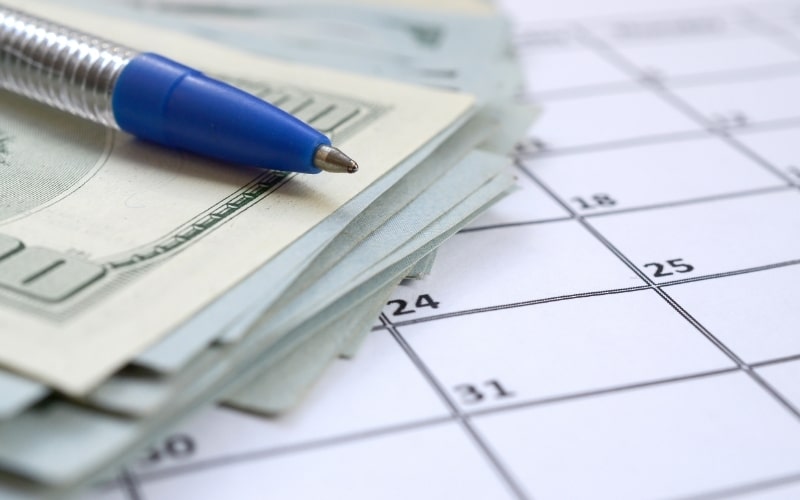The economic calendar is one of the most important tools you need for successful trading. It is the resource that offers dates when significant events are going to take place, or crucial announcements are going to be made. These events or announcements of economic data affect the movement of individual asset prices or the trading markets as a whole. Such indicators include consumer price indices, GDP, and more.
A critical trading tool unfolded
Traders and investors use the economic calendar for planning trades and portfolio reallocations. They can also be alert to indicators and chart patterns being affected by these events. The economic calendar for different countries is available for free on several financial and market websites. Traders use economic calendars for following forex news that shapes market trends and keeping track of the upcoming events for profit-seeking deals.
Will using an economic calendar make a difference in trading?
These calendars display the dates and the potential impact of those scheduled national and international events. Since specific types of events are known to affect trades in insignificant and predictable ways, traders can use the nature and date of the events on the economic calendar as a trading indicator for maximizing profit potential.
Recurring news events are the most convincing trading indicators as they exert a predictable impact on trading volume and trading sentiment. This type of event includes dates to publish widely regarded surveys or statistics and expected events such as federal decisions on trade balances, inflation, and interest rates. Other international events can also affect the volatility of the market, but the impact and timeline of solitary events can make trading more difficult because they are less certain.
How to choose the right calendar?
You can find a lot of free versions of economic calendars online. However, there are a few specific trading platforms that offer a more responsive and all-encompassing calendar to their account holders. You should never choose an economic calendar randomly.
Keep in mind that you will find it useful only if the events it shows are relevant to the market you trade in. Although forex trading is international in nature, you should have a calendar that will let you set custom qualification criteria. The results must also be filtered by country and currency used for trading.
What data will you get from it?
The majority of economic calendars provide a short description for every event, besides providing a value for previous, actual, and forecasted. The previous number refers to the change that is recorded after the last news event of the same nature. The actual number is the one that tracks the objective price movement taking place following the related event.
The forecasted number is expressed either as a currency value or a percentage. It represents the positive or negative market impact that an event is expected to leave. The economic calendar may also provide some contextual on every event, along with comparing current market performance with forecasted values.
A more sophisticated economic calendar, however, offers more than basic information. It allows you to filter results relevant to your chosen markets. Moreover, you can evaluate the impact of the events with its help by providing your predefined qualification criteria. If you use a custom forex economic calendar, you can select the currencies and markets you are focusing on easily and filter the events by currencies.
Why is the economic calendar worth your attention?
With the help of an economic calendar, traders can plan their trading according to the upcoming events by preparing themselves for possible price fluctuations. Here is what you should be aware of in the process.
Risk management
When an event listed in the economic calendar takes place, a period of volatility may be on its way. The released data can be far below, above, or in line with the traders’ expectations. The risk is the difference between the entry price and stop loss price multiplied by the position lot size. As a trader, you must target the risk percentage to be less than 2% of account equity.
Strategic planning
The economic calendar helps the traders to plan for the future. For example, if traders get to know in advance that the Nonfarm Payroll report is going to be released, they will be aware of the fact that this indicator can move the forex market substantially. So, with this benefit of being aware of NFP timings, traders can plan effective trading strategies based on the news.
The economic calendar does not really have any drawbacks. Traders find it extremely useful for building your strategies, risk prevention as you get to know about all the crucial events in good time.
However, the only drawback of this tool is that its use is not easy for traders, especially beginners. You need skill and experience to read and understand events from the economic calendar.
How to read the economic calendar?
You must know how to read the economic calendar properly because it will help you maximize your trading before and after important releases. It is recommended to check it every morning so you can be familiar with the upcoming events.
In default mode, you can view every piece of economic news. However, the information may seem overwhelming. So, it is better to customize the way it looks.
To customize the economic calendar, you can look at the past, current, and upcoming events by clicking on buttons like ‘Today,’ ‘Tomorrow,’ and ‘Next Seven Days.’

You can also change to your comfortable time zone by clicking the ‘Time zone.’
Buttons like ‘Importance’ and ‘Currencies’ can help you filter the most relevant news.
Conclusion
If you want to be successful in trading and want to take it seriously, you must keep track of the daily economic calendar. It only takes a few minutes to check it, but it will let you know the key upcoming releases you need to know before planning your trade and before you start your trading day. With a good trading strategy, you will achieve surprising results. Make the economic calendar an essential part of your morning routine.
